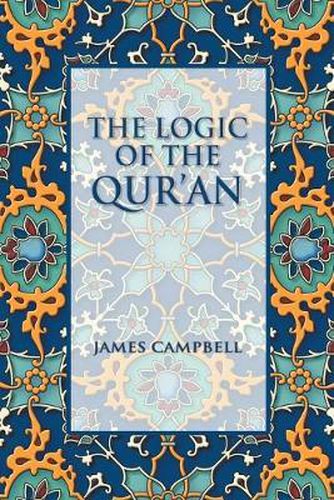Readings Newsletter
Become a Readings Member to make your shopping experience even easier.
Sign in or sign up for free!
You’re not far away from qualifying for FREE standard shipping within Australia
You’ve qualified for FREE standard shipping within Australia
The cart is loading…






This title is printed to order. This book may have been self-published. If so, we cannot guarantee the quality of the content. In the main most books will have gone through the editing process however some may not. We therefore suggest that you be aware of this before ordering this book. If in doubt check either the author or publisher’s details as we are unable to accept any returns unless they are faulty. Please contact us if you have any questions.
The events of September 11, 2001 in New York and other subsequent examples of terrorism have sparked endless debate about terrorism as a form of Islamic jihad and how this relates to the beliefs and teachings of the Islamic religion. The debate has expanded to include discussions on the Qur'an, the Bible and Christianity, their relationship to each other, as well as to Western secular and democratic society. In most cases, the debate has taken established positions that have been issues between Muslims and Christians for over 1400 years, and is conducted with little reference to, or quotations from, either the Qur'an or the Bible. In general, the commentary and opinions expressed do not seem to get to the heart of the conundrum presented by the intersection of Islam, Christianity and the secular Western world. Why do two religions say they believe in and worship the same single god, yet use different revelations from this god and appear to be at odds on so many matters of faith? Why would this single god present mankind with two revelations? And are these differences reconcilable and logically explainable? The Logic of the Qur'an is the result of the writer’s quest to examine these questions in a logical framework, rather than debating long-standing dogmatic theological positions. He attempts to avoid previous errors and uses quotations from both the Qur'an and the Bible so the reader can form a balanced judgment. Publisher’s website: http: //sbpra.com/JamesCampbell
$9.00 standard shipping within Australia
FREE standard shipping within Australia for orders over $100.00
Express & International shipping calculated at checkout
This title is printed to order. This book may have been self-published. If so, we cannot guarantee the quality of the content. In the main most books will have gone through the editing process however some may not. We therefore suggest that you be aware of this before ordering this book. If in doubt check either the author or publisher’s details as we are unable to accept any returns unless they are faulty. Please contact us if you have any questions.
The events of September 11, 2001 in New York and other subsequent examples of terrorism have sparked endless debate about terrorism as a form of Islamic jihad and how this relates to the beliefs and teachings of the Islamic religion. The debate has expanded to include discussions on the Qur'an, the Bible and Christianity, their relationship to each other, as well as to Western secular and democratic society. In most cases, the debate has taken established positions that have been issues between Muslims and Christians for over 1400 years, and is conducted with little reference to, or quotations from, either the Qur'an or the Bible. In general, the commentary and opinions expressed do not seem to get to the heart of the conundrum presented by the intersection of Islam, Christianity and the secular Western world. Why do two religions say they believe in and worship the same single god, yet use different revelations from this god and appear to be at odds on so many matters of faith? Why would this single god present mankind with two revelations? And are these differences reconcilable and logically explainable? The Logic of the Qur'an is the result of the writer’s quest to examine these questions in a logical framework, rather than debating long-standing dogmatic theological positions. He attempts to avoid previous errors and uses quotations from both the Qur'an and the Bible so the reader can form a balanced judgment. Publisher’s website: http: //sbpra.com/JamesCampbell